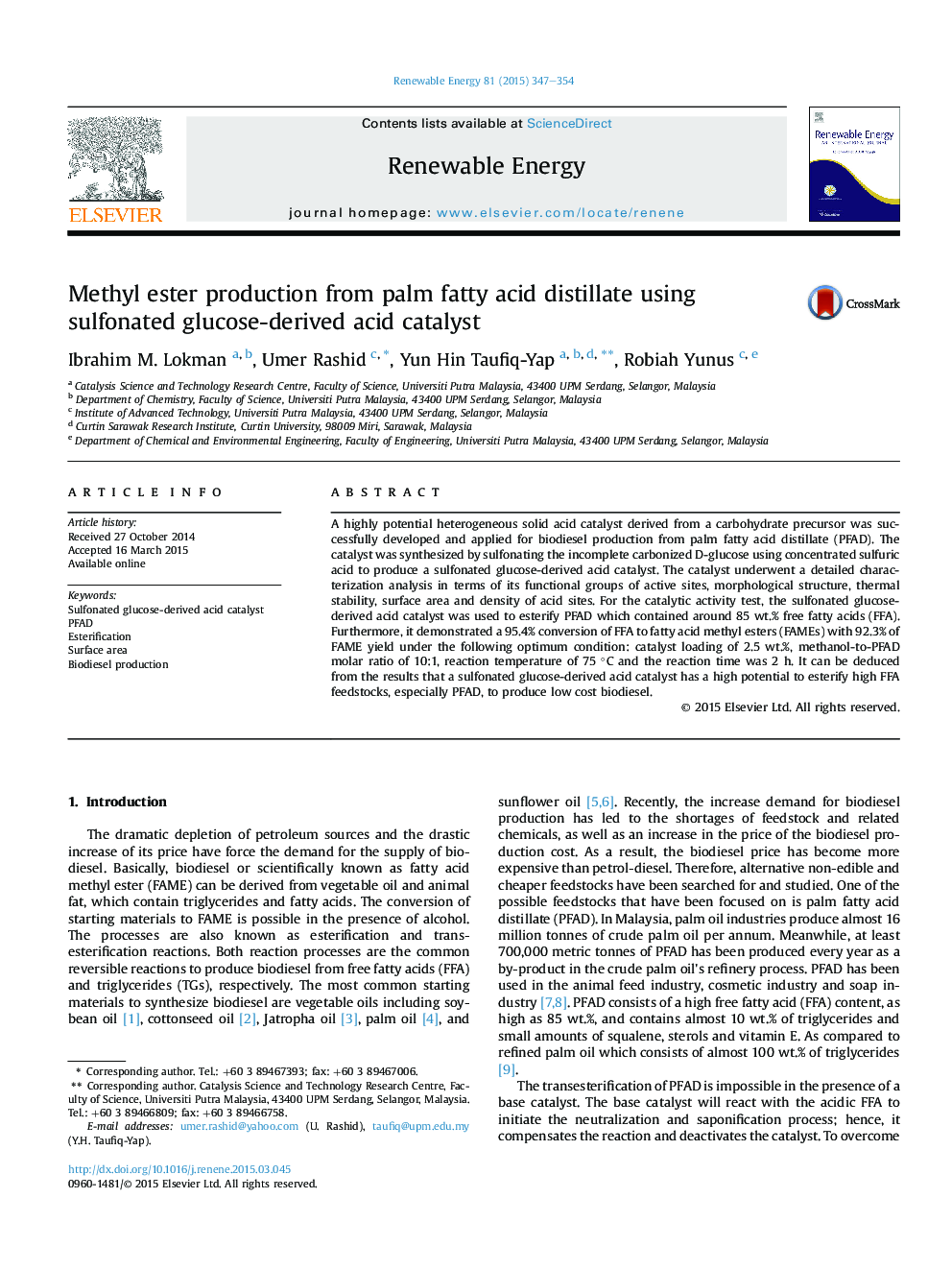| Article ID | Journal | Published Year | Pages | File Type |
|---|---|---|---|---|
| 6767038 | Renewable Energy | 2015 | 8 Pages |
Abstract
A highly potential heterogeneous solid acid catalyst derived from a carbohydrate precursor was successfully developed and applied for biodiesel production from palm fatty acid distillate (PFAD). The catalyst was synthesized by sulfonating the incomplete carbonized D-glucose using concentrated sulfuric acid to produce a sulfonated glucose-derived acid catalyst. The catalyst underwent a detailed characterization analysis in terms of its functional groups of active sites, morphological structure, thermal stability, surface area and density of acid sites. For the catalytic activity test, the sulfonated glucose-derived acid catalyst was used to esterify PFAD which contained around 85 wt.% free fatty acids (FFA). Furthermore, it demonstrated a 95.4% conversion of FFA to fatty acid methyl esters (FAMEs) with 92.3% of FAME yield under the following optimum condition: catalyst loading of 2.5 wt.%, methanol-to-PFAD molar ratio of 10:1, reaction temperature of 75 °C and the reaction time was 2 h. It can be deduced from the results that a sulfonated glucose-derived acid catalyst has a high potential to esterify high FFA feedstocks, especially PFAD, to produce low cost biodiesel.
Related Topics
Physical Sciences and Engineering
Energy
Renewable Energy, Sustainability and the Environment
Authors
Ibrahim M. Lokman, Umer Rashid, Yun Hin Taufiq-Yap, Robiah Yunus,
